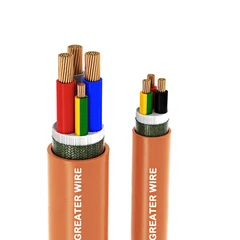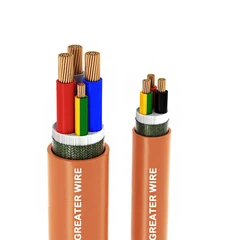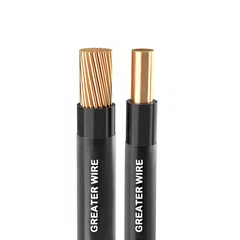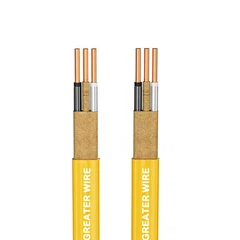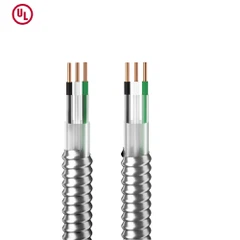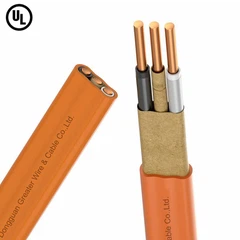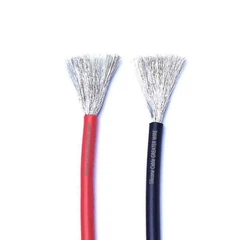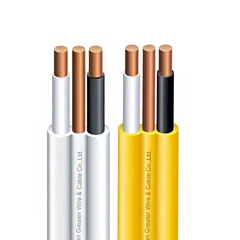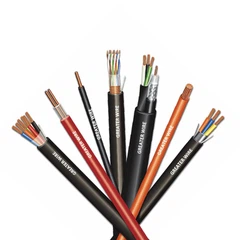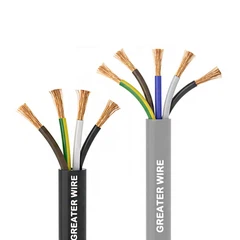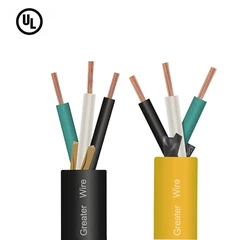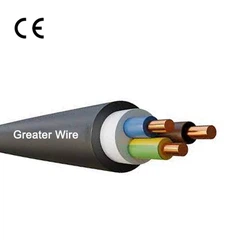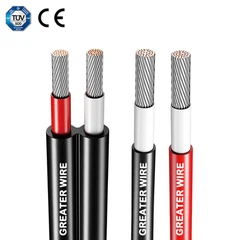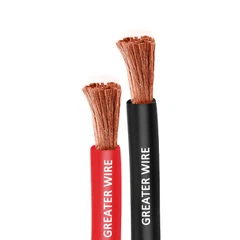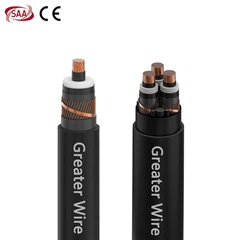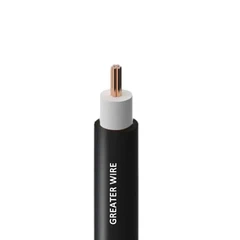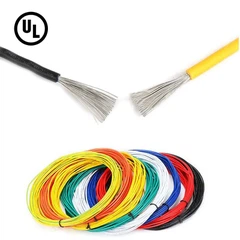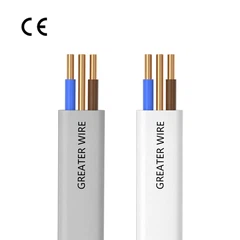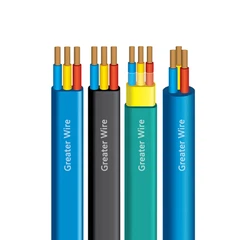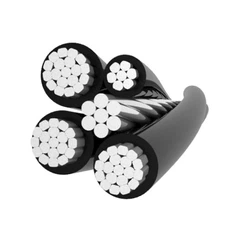In the world of high-performance wire, the terms PTFE (polytetrafluoroethylene) and Teflon are often used interchangeably, leading to confusion among engineers, technicians, and procurement professionals. Both materials are widely recognized for their superior insulation properties, heat resistance, and chemical stability, but understanding their similarities, differences, and applications is key to selecting the right wire for any project.
This article explores what PTFE and Teflon wire are, their differences and connections, selection tips, and how to choose the best wire for your project.
What Is PTFE?
PTFE, short for polytetrafluoroethylene, is a synthetic fluoropolymer renowned for its outstanding thermal stability, chemical resistance, and electrical insulation properties. It can withstand extreme temperatures ranging from -190°C to +260°C, making it ideal for high-performance and high-reliability applications. PTFE is non-stick, chemically inert, and exhibits very low friction, which contributes to its durability in harsh environments.
In electrical applications, PTFE is commonly used as an insulation material for wires, cables, and high-frequency circuits. Its smooth surface prevents chafing and moisture ingress, while its high dielectric strength ensures excellent signal integrity in sensitive electronics. PTFE can be used in aerospace, industrial automation, automotive high-temperature systems, laboratory instruments, and medical devices.
What Is Teflon Wire?
Teflon wire is essentially an electrical wire insulated with PTFE material. The term "Teflon" is a trademarked brand name for PTFE, widely adopted in both industrial and consumer applications. A typical Teflon wire consists of a copper conductor, either tinned or bare, covered with PTFE insulation, combining superior electrical conductivity with extreme environmental durability.
Teflon wire is especially valued in scenarios where wires are exposed to high temperatures, harsh chemicals, or high-frequency electrical signals. Its insulation does not melt, degrade, or lose elasticity under extreme conditions, making it suitable for aerospace wiring, high-voltage laboratory instruments, industrial machinery, and advanced automotive applications.
Differences Between PTFE and Teflon
While PTFE and Teflon are often used interchangeably, there are subtle differences worth noting:
| Feature | PTFE | Teflon Wire |
|---|---|---|
| Definition | A fluoropolymer material used in various applications | An electrical wire insulated with PTFE (Teflon) |
| Usage | Material form: sheets, tubes, coatings, or raw insulation | Finished wire with copper conductor and PTFE insulation |
| Brand Name | Generic chemical name | Brand name commonly used for marketing |
| Application | Broader industrial, chemical, and electrical uses | Primarily electrical and high-performance wiring |
Essentially, PTFE is the material, while Teflon wire is the end product that uses PTFE as insulation. The term "Teflon" has become synonymous with PTFE in the wire industry, but technically, PTFE refers to the polymer itself, while Teflon refers to the insulated wire made from PTFE.
Common Points Between PTFE and Teflon Wire
Despite their differences, PTFE and Teflon wire share key properties that make them exceptional for demanding electrical applications:
- High Temperature Resistance: Both can withstand extreme temperatures without losing structural or electrical integrity.
- Chemical Resistance: Both are highly resistant to oils, fuels, solvents, and most chemicals.
- Electrical Performance: Low dielectric constant and high insulation resistance ensure reliable signal transmission and minimal energy loss.
- Durability: Non-stick, mechanically stable, and resistant to aging, providing long service life in harsh conditions.
These shared characteristics make both PTFE and Teflon wire suitable for aerospace, industrial, automotive, and high-frequency electronics.
How to Choose Between PTFE and Teflon
In practice, choosing between PTFE and Teflon wire depends on the project's specific requirements. PTFE sheets, tubes, or coatings may be appropriate for insulation, sealing, or protective applications outside electrical wiring. For electrical wiring, Teflon wire is the practical choice, as it integrates copper conductors with PTFE insulation for ready-to-use installation.
When selecting the most suitable wire, consider factors such as:
- Operating Temperature: Use Teflon wire for extreme heat applications, while PTFE material can also be used in non-wiring high-temperature insulation.
- Mechanical Requirements: Teflon wire provides flexibility for routing and bending, whereas raw PTFE material is rigid unless fabricated into flexible tubing.
- Electrical Load and Signal Requirements: High-voltage or high-frequency circuits benefit from Teflon wire's low dielectric loss.
- Environmental Conditions: For chemical or moisture exposure, both materials excel, but the finished Teflon wire offers the convenience of installation-ready insulation.
How to Select the Right Wire for Engineering Projects
Choosing the appropriate wire for an engineering project involves evaluating several critical criteria to ensure safety, reliability, and performance:
1.Temperature Range: Determine the extremes of temperature the wire will face. Teflon wire maintains insulation and conductivity in oth ultra-low and ultra-high temperature conditions.
2.Mechanical Stress and Flexibility: Assess whether wires will bend, twist, or experience vibration. Teflon wire offers excellent flexibility while retaining durability under repeated motion.
3.Electrical Specifications: Verify voltage rating, current-carrying capacity, and signal requirements. High-frequency, low-loss applications often require Teflon wire.
4.Environmental Exposure: Consider exposure to chemicals, moisture, oils, or UV light. Both PTFE and Teflon wire provide superior chemical and moisture resistance.
5.Compliance Standards: Ensure UL, CE, or other regulatory certifications are met.
6.Manufacturer Reliability: Work with reputable suppliers for quality assurance, customization, and technical support.
By carefully assessing these factors, engineers can select a wire that delivers safety, efficiency, and long-term performance, reducing maintenance costs and operational risks.
Is PTFE the Same as Teflon Wire?
To summarize, PTFE is the material, and Teflon wire is the finished electrical wire insulated with PTFE. While the terms are sometimes used interchangeably, especially in the wire industry, it is important to distinguish between the polymer itself and the ready-to-use wire product.
Both share excellent temperature resistance, chemical stability, electrical insulation, and durability, but Teflon wire offers the added convenience of a copper conductor integrated with PTFE insulation, making it suitable for immediate use in wiring systems.
Why Choose Dongguan Greater Wire & Cable Co., Ltd.
Dongguan Greater Wire & Cable Co., Ltd. is a trusted manufacturer specializing in high-quality Teflon wires and PTFE-insulated solutions. With advanced production facilities, rigorous quality control, and expert technical support, the company ensures that every wire meets international safety and performance standards.
We offer a wide range of products suitable for aerospace, industrial automation, automotive, laboratory instruments, and high-frequency electronics. Customization options include conductor size, insulation thickness, temperature rating, and packaging. By choosing Dongguan Greater Wire & Cable Co., Ltd., clients gain access to reliable, durable, and high-performance wiring solutions backed by responsive service and technical guidance.
Contact Us
- Tel/WhatsApp/WeChat: +86 135 1078 4550 / +86 136 6257 9592
- Email: manager01@greaterwire.com
Choose Dongguan Greater Wire & Cable Co., Ltd. for premium PTFE and Teflon wire solutions that deliver performance, durability, and safety for industrial, automotive, aerospace, and high-tech applications.

